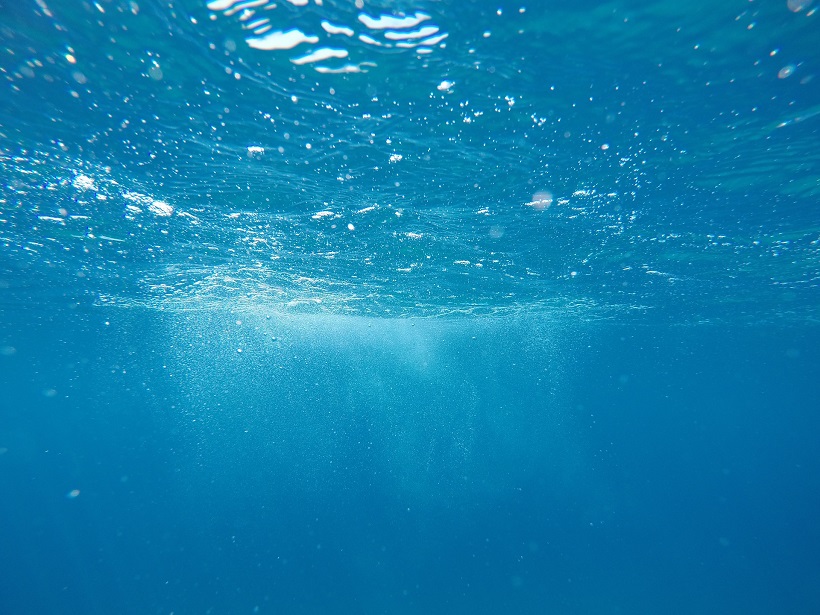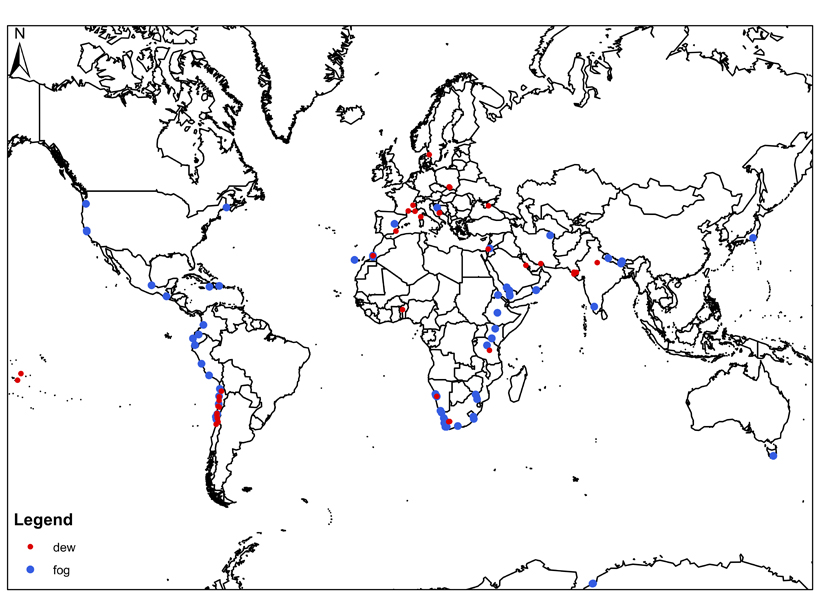A method for estimating potential spicity, a thermodynamic variable in oceanography, provides a new way to describe contrasts in watermass properties.
CC BY-NC-ND 2018
Black Carbon Not the Primary Cause of Historic Glacial Retreat
Ice cores and glacial records reveal that European glaciers retreated before the rise of industrialization in the 1870s, suggesting that soot deposition did not primarily drive the shift.
World off Course to Meet Emissions Reduction Goals
A new energy report shows a disconnect between scientific research targets and what is happening in the energy markets.
Fog Catching for Thirsty Locales
Many arid and semi-arid regions experience very little rainfall, but quite a bit of fog, which might be a viable source of drinking water.
Grottoli Receives 2018 Ocean Sciences Voyager Award
Andréa G. Grottoli will receive the 2018 Ocean Sciences Voyager Award at AGU’s Fall Meeting 2018, to be held 10–14 December in Washington, D. C. The award is given to midcareer scientists for significant contributions and expanding leadership in ocean sciences.
Plumley Receives 2018 Donald L. Turcotte Award
Meredith Plumley will receive the 2018 Donald L. Turcotte Award at AGU’s Fall Meeting 2018, to be held 10–14 December in Washington, D. C. This award is given annually to a recent Ph.D. recipient for “outstanding dissertation research that contributes directly to nonlinear geophysics.”
Celebrating the 2018 Class of Fellows
AGU President-elect Robin Bell will present the newly elected class at the upcoming AGU Fall Meeting.
Jones Receives 2018 Gilbert F. White Award
Lucile Jones will be awarded the 2018 Gilbert F. White Award. She will be formally presented with the award at AGU’s Fall Meeting 2018, to be held 10–14 December in Washington, D. C. This award is given in recognition of original contributions to the basic knowledge of natural hazards and/or disaster risks.
Brooks Receives 2018 Natural Hazards Section Award for Graduate Research
Edward Brooks will be awarded the 2018 Natural Hazards Section Award for Graduate Research. He will be formally presented with the award at AGU’s Fall Meeting 2018, to be held 10–14 December in Washington, D. C. The award recognizes “one or more promising young scientists engaged in studies of natural hazards and risks” and is given “in recognition of outstanding contributions achieved during their Ph.D. (or highest equivalent terminal degree) research.”
What Makes a Terrestrial Gamma-Ray Flash in Thunderclouds?
Two lightning flashes were observed in the same location: One produced a bright gamma-ray flash with about 1000 counts per millisecond, but the other did not.






